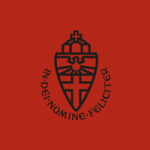
PhD Candidate: Neurocognitive Mechanisms of Alternative Thinking at the Donders Centre for Cognition
项目介绍
Are you fascinated by the connection between adapting communication and managing emotions? And do you want to contribute to research using a new neuroimaging technology to track neural activity during communicative and emotional control challenges? Then join the Donders Centre for Cognition as a PhD candidate!
This project aims to understand the neurocognitive relation between the development of referential communication and emotional action control, testing the hypothesis that both rely on the capacity of generating different hypothetical scenarios with different action options, and that this capacity (’alternative thinking’) can be differentiated from other instances of cognitive flexibility. The project harnesses natural developmental variations in the emergence of communicative skills and emotional action control to gain insight into the role and mechanisms of alternative thinking. By embedding participants in live interactions with other human agents, this project will study alternative thinking in an experimental context closer to the boundary conditions of the problems the brain evolved to solve, testing the possibility of explaining superficially different phenomena by means of a single cognitive capacity.
You will be responsible for planning, implementing, and analysing projects investigating human communication and emotion control during performance of interactive games with concurrent electrophysiological measurements. The position may also involve mentoring MSc students. You will take the lead in reporting the findings, in collaboration with the PIs, in international journals and conferences.
We are looking for a candidate with an MSc degree who is interested in a PhD and joining a multidisciplinary team at the Donders Institute. The study will involve acquiring and analysing neural and behavioural data from three cross-sectional samples (4-5, 12-14, and 18-24 years old), using a new neuroimaging technology (Optically Pumped Magnetometers) to track neural activity during communicative and emotional control challenges.
The project is embedded in the research groups of Prof. Ivan Toni, Dr Marlene Meyer and Prof. Karin Roelofs at the Donders Institute, combining expertise in social neurocognition, developmental neurocognition and emotional control.
Profile
You should have an MSc degree in cognitive neuroscience with expertise in analysing behavioural and/or electrophysiological data, and an interest in experimental testing across different developmental stages. Coding literacy (Matlab, Python, and/or R) and fluency in written/spoken English is required. Given the interdisciplinary nature of the research setting, you will need a strong collaborative attitude and a proven ability to work in a team. The Donders Institute values a diverse workforce. Candidates from social minority groups are therefore particularly encouraged to apply.
We are
The Donders Institute for Brain, Cognition and Behaviour is a world-class interfaculty research centre that houses more than 700 researchers devoted to understanding the mechanistic underpinnings of the human mind. Research at the Donders Institute is focused around four themes: 1. Language and communication, 2. Perception, action and control, 3. Plasticity and memory, 4. Neural computation and neurotechnology. Excellent, state-of-the-art research facilities are available for the broad range of neuroscience research that is being conducted at the Donders Institute. The Donders Institute has been assessed by an international evaluation committee as ‘excellent’ and recognised as a ‘very stimulating environment for top researchers, as well as for young talent’. The Donders Institute fosters a collaborative, multidisciplinary and supportive research environment with a diverse international staff. English is the lingua franca at the Institute.
Radboud University
At Radboud University, we aim to make an impact through our work. We achieve this by conducting groundbreaking research, providing high-quality education, offering excellent support, and fostering collaborations within and outside the university. In doing so, we contribute indispensably to a healthy, free world with equal opportunities for all. To accomplish this, we need even more colleagues who, based on their expertise, are willing to search for answers. We advocate for an inclusive community and welcome employees with diverse backgrounds, cultures, and perspectives. Will you also contribute to making the world a little better? You have a part to play.
If you want to learn more about working at Radboud University, follow our Instagram account and read stories from our colleagues.
Faculty of Social Sciences
At the Faculty of Social Sciences, humanity and society are our focus; we study how people behave, think and feel. Within this context, we look at themes such as human behaviour and the human psyche, education and upbringing, communication, society and culture. The faculty provides education to 6,000 students and employs 700 staff. Education is organised into six programme clusters: Psychology; Artificial Intelligence; Pedagogical Sciences and Educational Sciences; Communication Science; Sociology; and Cultural Anthropology and Developmental Sociology. Our research is carried out within three research institutes: the Donders Centre for Cognition, the Behavioural Science Institute, and Radboud Social Cultural Research.
We offer
- We will give you a temporary employment contract (1.0 FTE) of 1,5 years, after which your performance will be evaluated. If the evaluation is positive, your contract will be extended by 2.5 years (4-year contract).
- You will receive a starting salary of €2,770 gross per month based on a 38-hour working week, which will increase to €3,539 in the fourth year (salary scale P).
- You will be able to use our Dual Career and Family Support Service. The Dual Career Programme assists your partner via support, tools, and resources to improve their chances of independently finding employment in the Netherlands. Our Family Support Service helps you and your partner feel welcome and at home by providing customised assistance in navigating local facilities, schools, and amenities. Also take a look at our support for international staff page to discover all our services for international employees.
- You will receive extra days off. With full-time employment, you can choose between 30 or 41 days of annual leave instead of the statutory 20.
Additional employment conditions
Work and science require good employment practices. Radboud University’s primary and secondary employment conditions reflect this. You can make arrangements for the best possible work-life balance with flexible working hours, various leave arrangements and working from home. You are also able to compose part of your employment conditions yourself. For example, exchange income for extra leave days and receive a reimbursement for your sports membership. And, of course, we offer a good pension plan. We also give you plenty of room and responsibility to develop your talents and realise your ambitions. Therefore, we provide various training and development schemes.
相关项目推荐
KD博士实时收录全球顶尖院校的博士项目,总有一个项目等着你!





